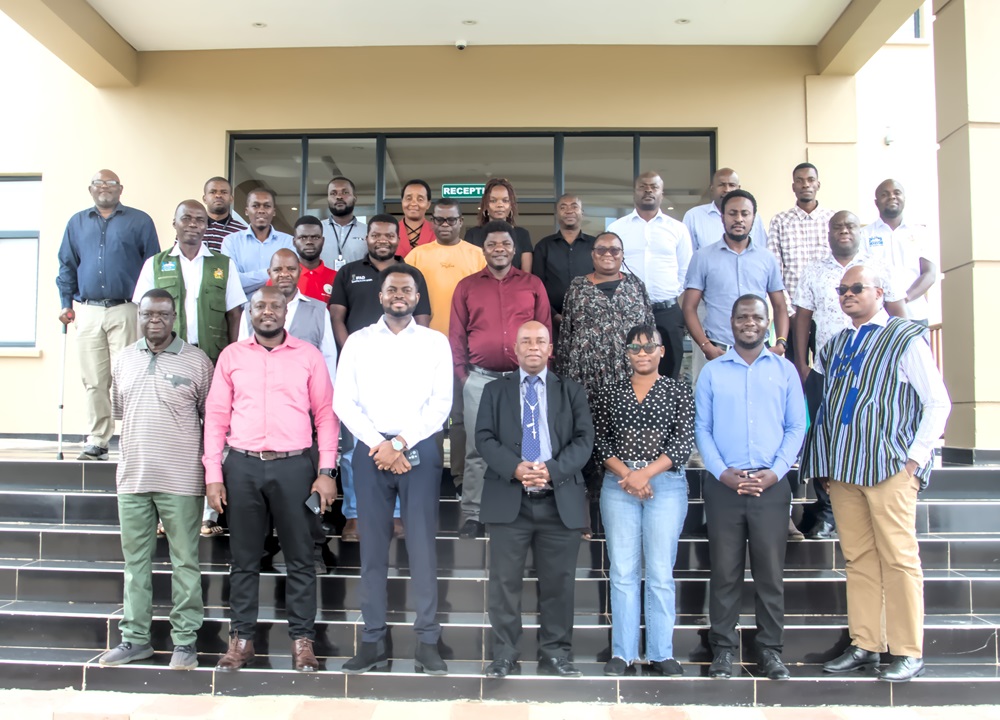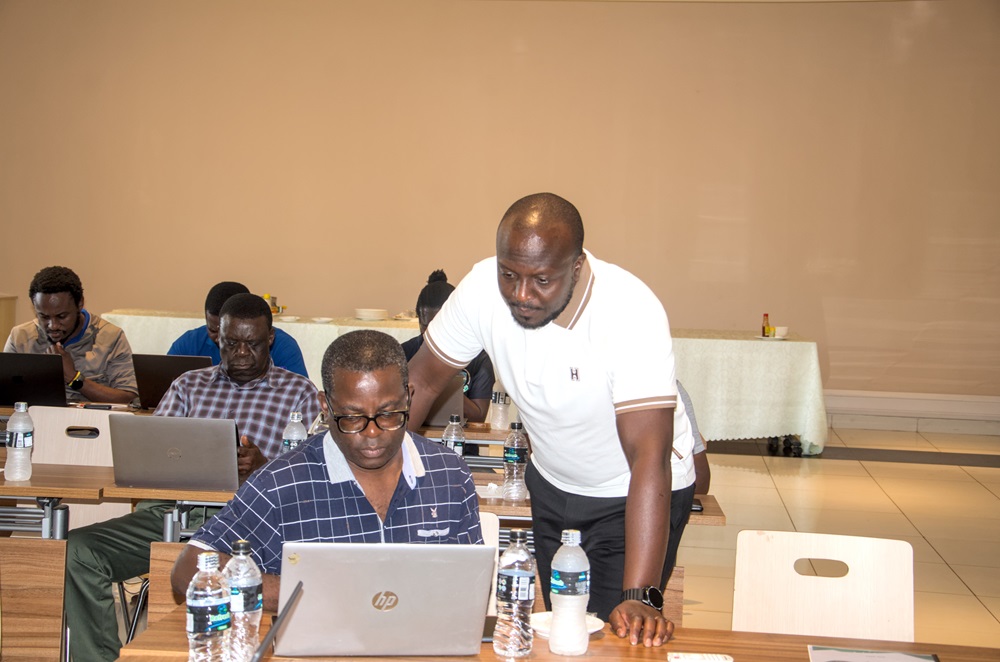
CABI has delivered a three-day refresher technical training workshop in Malawi aimed at encouraging greater effective data management practices as part of the Malawi Digital Plant Health Service (MaDiPHS) project.
Henry Mibei, Manager, Digital Development, Africa, and Gideon Abegunrin, Data Policy Analyst, conducted the training for more than 30 people from 10 different organizations including the Ministry of Agriculture, Lilongwe University of Agriculture and Natural Resources (LUANAR), Department of Climate Change and Meteorological Services (DCCMS) and National Statistical Office.
Various IGOs, NGOs and development partners, such as the International Institute of Tropical Agriculture (IITA) and Total Land Care, also participated in the workshop, which additionally shared knowledge about FAIR data principles, alongside staff from Ministry of Information and Digitalisation (Department of E-government and ICT).
Efficient pest and disease management
MaDiPHS is a project led by the Norwegian Institute of Bioeconomy Research (NIBIO) and funded by Norway. It is establishing a digital agricultural plant health service for efficient pest and disease management in Malawi to benefit over 100,000 farmers.
Ultimately, it is hoped that a tool will be developed for targeted and efficient pest and disease management of five crops (maize, tomato, cassava, groundnuts and banana) and their pests in Malawi.
The latest training included the role of a Data Catalogue in implementing FAIR data principles (Findable, Accessible, Interoperable and Reusable), the role of data stewards, how to choose the right Creative Commons (CC) license for data, navigating the MaDiPHS data catalogue, validating and updating metadata of the datasets and information resources in the MaDiPHS data catalogue.
Robust metadata and data for the modelling needs of the project

Mr Mibei said, “The CABI team emphasized the need for robust metadata and data for the modelling needs of the project. Participants appreciated the significance of the MaDiPHS data catalogue, how it can serve as a centralized repository for agricultural-related data assets, and how it has encouraged sharing and collaboration between national partners.
“Attendees expressed appreciation for how the MaDiPHS data catalogue functions as a centralized hub for agricultural and related datasets, simplifying the access and management of data. The use of Nextcloud – an open-source content collaboration platform for storing datasets – was particularly well received by the participants.
“There is now a need for a change in mindset among some partners to promote data sharing for the project.”
Recommendations for improved data management
Back in January a case study report of the MaDiPHS project entitled ‘Sustainable and FAIR data sharing in practice in agriculture contexts in Malawi – successes and challenges,’ highlighted four major recommendations for improved data management and sharing within projects.
It recommended engagement with senior decision makers in the Ministry of Agriculture, the Department of E-Government under the Ministry of Information and Digitalisation, and ICT specialists to discuss the way forward for storing the datasets collected in the project on a national level, and a plan for maintaining the MaDiPHS data catalogue.
Furthermore, it recommended leveraging existing policy (either in draft or enacted) related to digitalization/data sharing on a national level to support the provision of data storage infrastructure, capacity strengthening on FAIR, and build ownership of the data catalogue and the FAIR data-sharing agenda at senior levels of the Ministry of Agriculture, supporting infrastructures that are foundational components of the International Platform.
These recommendations have been addressed in the workshop, ensuring that Nextcloud was chosen as the tool for storing national datasets and was linked to the metadata in the MaDiPHS data catalogue. The Nextcloud will be hosted on the e-government server to ensure ownership of the data infrastructure in government, and sustainability of the MaDiPHS data catalogue and international platform.
The international platform being developed under the project will combine national, regional, and global input data intended for future use, such as in the development of agricultural decision-support tools and data modelling in the country and beyond.
It also recommended that strategic partnerships should be formed with intergovernmental bodies to secure long-term investment in the capacity strengthening of researchers, scientists, and students in basic data management, FAIR data implementation, and technical capacity in maintaining ICT systems and data repositories such as the Comprehensive Knowledge Archive Network (CKAN), an open-source data portal for the storage and distribution of open data.
The first report of how FAIR is operationalised in the MaDiPHS project can be read in full here.
Additional information
Main image: Participants of the workshop in Malawi held as part of the MaDiPHS project (Credit: IITA).
Project page
Find out more about how CABI is working in partnership to establish a digital agricultural plant health service for efficient pest and disease management in Malawi that will benefit over 100,000 farmers from the project page here.
Relevant stories
‘MaDiPHS project report highlights four recommendations for improved data management and sharing.’
‘Plans for digital plant health service in Malawi will benefit over 100,000 smallholder farmers.’
Related News & Blogs
Importance of MaDiPHS Data Catalogue highlighted as a key resource towards greater FAIR data in agriculture
The importance of the Malawi Digital Plant Health Service (MaDiPHS) Data Catalogue has been highlighted as a key resource towards greater FAIR data in the agricultural sector at a workshop attended by various stakeholders in Malawi. Henry Mib…
14 August 2024

